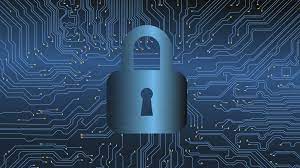October is a special month for cybersecurity businesses in the United States. In an effort to increase awareness about the need for cyber security measures in the era of information technology, October has been declared as National Cyber Security Awareness Month (NCSAM).
The National Cyber Security Awareness Month project will be in its 17th year in 2020. This project has helped to mainstream the discourse about cybersecurity and its relevance over the last few years.
From the ordinary internet user to internet specialists, National Cyber Security Awareness Month takes a two-pronged approach to discuss cybersecurity is everyone’s responsibility. The four key goals of NCSAM are as follows:
- Strengthen cybersecurity measures in the United States (and throughout the world).
- Ascertain that cybersecurity measures are implemented in all areas and aspects of life.
- Enhance the cybersecurity workforce in all professional fields.
- All online infrastructure is being secured.
While October is National Cyber Security Awareness Month, you should be aware that cyber security awareness should extend to all parts of your online life throughout the year.
Let’s start with some scary figures and facts to emphasize the significance of cyber security awareness:
- In 2016, 18 million new malware samples were discovered, with a daily average of 200,000. To keep modern malware at bay, you must keep your security systems up to date.
- 2015, there has been a 300 percent yearly growth in ransomware assaults, with 1,000 attacks per day on average.
- At the start of 2016, ransomware was found in 92 percent of all phishing emails. The figure had risen to 97.25 percent at the conclusion of the year.
- Despite recognizing the security hazards, 78 percent of all internet users click on unfamiliar email links.
- After a cyberattack, 52 percent of all firms are still unwilling to update their security systems.
- A web-based assault has been encountered by 64 percent of all businesses, phishing has been targeted by 62 percent, and a denial-of-service attack has been experienced by 51 percent.
- Nearly 75% of the medical business has been victimized by a malicious data breach.
- By 2020, more than 200 billion gadgets will be linked to the Web of Things, vastly raising the risk of harm if any of them is targeted.
Taking Preventative Cyber Security Measures
- Identity protection: Use several passwords for various accounts and mix up characters, digits, and letters to make them harder to guess.
- Protection against Hackers, Viruses, Phone Sites, and Malware: Keep your firewall turned on to avoid assaults from hackers, bacteria, phones.
- Anti-Virus Safety: Install and update reputable anti-virus software on a regular basis.
- Anti-Spyware Protection: To prevent spyware from infiltrating your computer, install and update reputable anti-spyware software on a regular basis.
- Update Your Operating Systems: Always keep your operating systems up to date.
- Backups: Keep a copy of your key documents on an external hard drive.
- Wireless Network Security: Hire an expert to protect your Wi-Fi connection so that it can’t be hacked.
- Delete Spam: Viruses can be spread through email attachments from unknown or suspect sources.
- Safe Surfing: Only exchange personal information such as billing information, address, and other sensitive information with sites that have an SSL certificate.
- Report: If you discover any unusual behaviour, you should make a report it to the proper authorities as computer fraud, crime, or identity theft.



